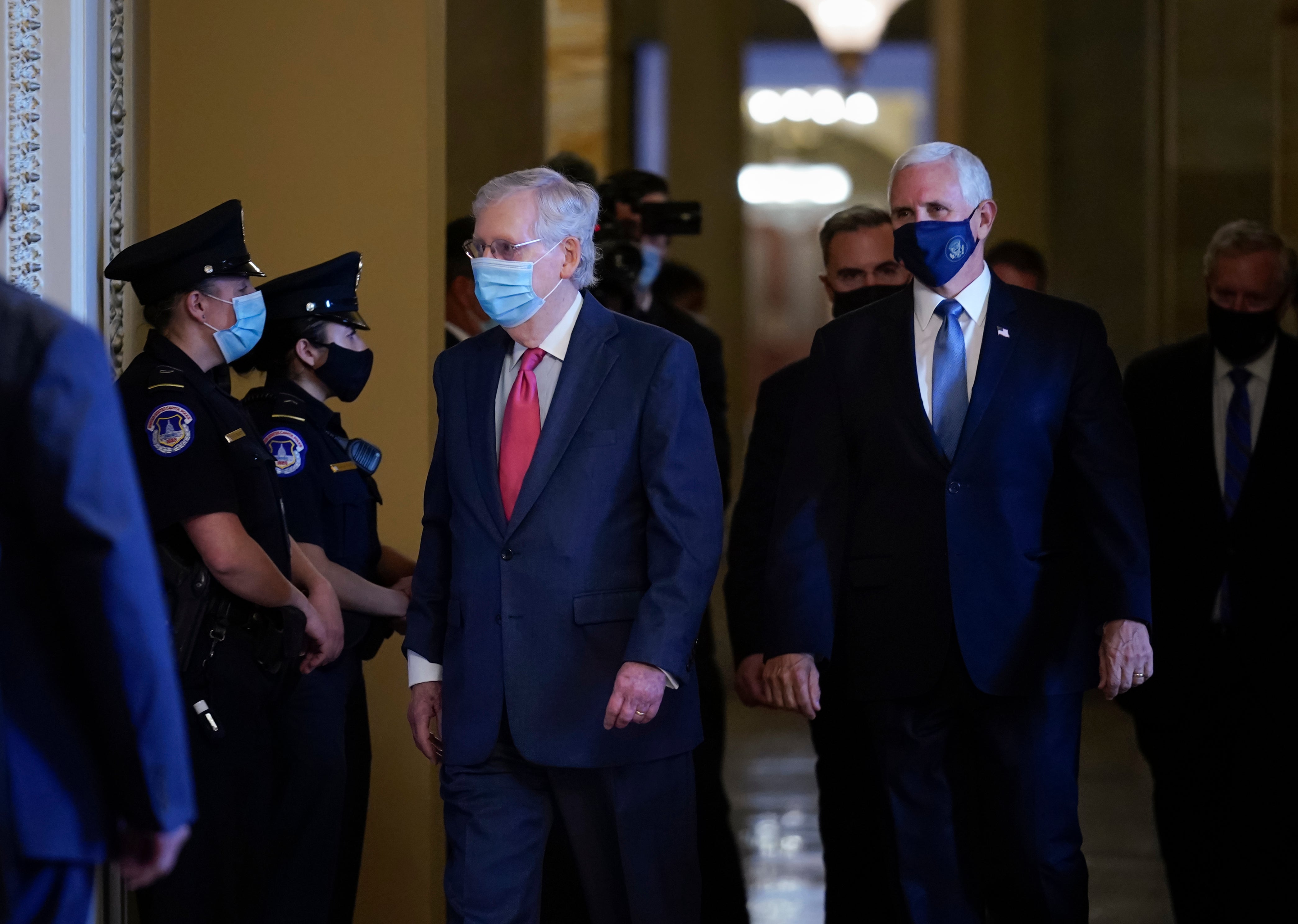Senate approves bill to avoid shutdown, sending it to Trump
The Senate is sending President Trump legislation to temporarily fund the government

Your support helps us to tell the story
From reproductive rights to climate change to Big Tech, The Independent is on the ground when the story is developing. Whether it's investigating the financials of Elon Musk's pro-Trump PAC or producing our latest documentary, 'The A Word', which shines a light on the American women fighting for reproductive rights, we know how important it is to parse out the facts from the messaging.
At such a critical moment in US history, we need reporters on the ground. Your donation allows us to keep sending journalists to speak to both sides of the story.
The Independent is trusted by Americans across the entire political spectrum. And unlike many other quality news outlets, we choose not to lock Americans out of our reporting and analysis with paywalls. We believe quality journalism should be available to everyone, paid for by those who can afford it.
Your support makes all the difference.By a sweeping bipartisan vote Wednesday, the Senate sent President Trump a bill to fund the government through Dec. 11, averting the possibility of a government shutdown when the new fiscal year starts Thursday.
Trump is expected to sign the measure before Wednesday's midnight deadline. The temporary extension will set the stage for a lame-duck session of Congress later this year, where the agenda will be largely determined by the outcome of the presidential election.
The measure would keep the government running through Dec. 11 and passed by a 84-10 vote. The House passed the bill last week.
The stopgap spending bill is required because the GOP-controlled Senate has not acted on any of the 12 annual spending bills that fund the 30% of the government's budget that is passed by Congress each year. If Democratic nominee Joe Biden wins the White House in November, it's likely that another stopgap measure would fund the government into next year and that the next administration and Congress would deal with the leftover business.
The measure is the bare minimum accomplishment for Capitol Hill’s powerful Appropriations committees, who pride themselves on their deal-making abilities despite gridlock in other corners of Congress.
The legislation — called a continuing resolution, or CR, in Washington-speak — would keep every federal agency running at current funding levels through Dec. 11, which will keep the government afloat past an election that could reshuffle Washington’s balance of power.
The measure also extends many programs whose funding or authorizations lapse on Sept. 30, including the federal flood insurance program, highway and transit programs, and a long set of extensions of various health programs, such as a provision to prevent Medicaid cuts to hospitals that serve many poor people.
It also finances the possible transition to a new administration if Biden wins the White House and would stave off an unwelcome COVID-caused increase in Medicare Part B premiums for outpatient doctor visits.
Farm interests won language that would permit Trump's farm bailout to continue without fear of interruption. In exchange, House Democrats won $8 billion in food aid for the poor.